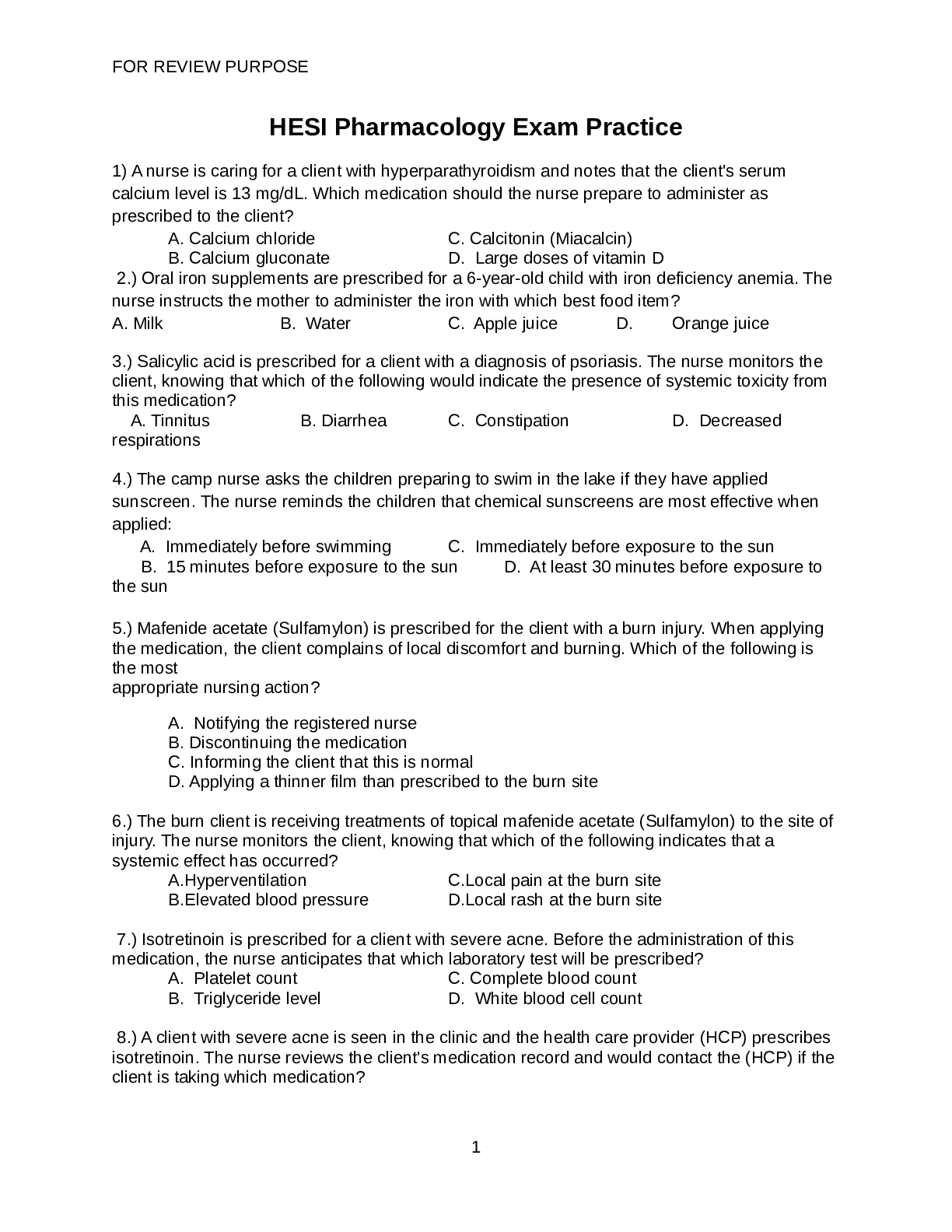*NURSING > HESI > Pharmacology HESI Practice Exam / HESI Pharmacology Exam | Questions and Answers with Rationales |Hi (All)
Pharmacology HESI Practice Exam / HESI Pharmacology Exam | Questions and Answers with Rationales |Highly Rated| Latest 2021 / 2022
Document Content and Description Below
Pharmacology HESI Practice Exam The health care provider prescribes carbamazepine for a child whose tonic-clonic seizures have been poorly controlled. The nurse informs the mother that the child mus... t have blood tests every week. The mother asks why so many blood tests are necessary. Which complication is assessed through frequent laboratory testing that the nurse should explain to this mother? Myelosuppression Rationale: Myelosuppression is the highest priority complication that can potentially affect clients managed with carbamazepine therapy. The client requires close monitoring for this condition by weekly laboratory testing. Hepatic function may be altered, but this complication does not have as great a potential for occurrence as Myelosupression A client is prescribed a cholinesterase inhibitor, and a family member asks the nurse how this medication works. Which pharmacophysiologic explanation should the nurse use to describe this class of drug? Improves nerve impulse transmission Rationale: Cholinesterase inhibitors work to increase the availability of acetylcholine at cholinergic synapses, which aids in neuronal transmission and assists in memory formation. A client is ordered 22 mg of gentamicin by IM injection. The drug is available in 20 mg/2 mL. How many milliliters should be administered? 2.2 mL Rationale: (22 mg/20 mg) × (x mL/2 mL) = 22x = 40 x = 2.2 mL In addition to nitrate therapy, a client is receiving nifedipine, 10 mg PO every 6 hours. The nurse should plan to observe for which common side effect of this treatment regimen? Hypotension Rationale: Nifedipine reduces peripheral vascular resistance and nitrates produce vasodilation, so concurrent use of nitrates with nifedipine can cause hypotension with the initial administration of these agents. Which response best supports the observations that the nurse identifies in a client who is experiencing a placebo effect? Psychological response to inert medication Rationale: The placebo effect is a response in the client that is caused by the psychological impact of taking an inert drug that has no biochemical properties. A placebo effect can be therapeutic, negative, or ineffective but provides no cure or benefit to the client's progress. The placebo effect may evoke [Show More]
Last updated: 1 year ago
Preview 1 out of 41 pages
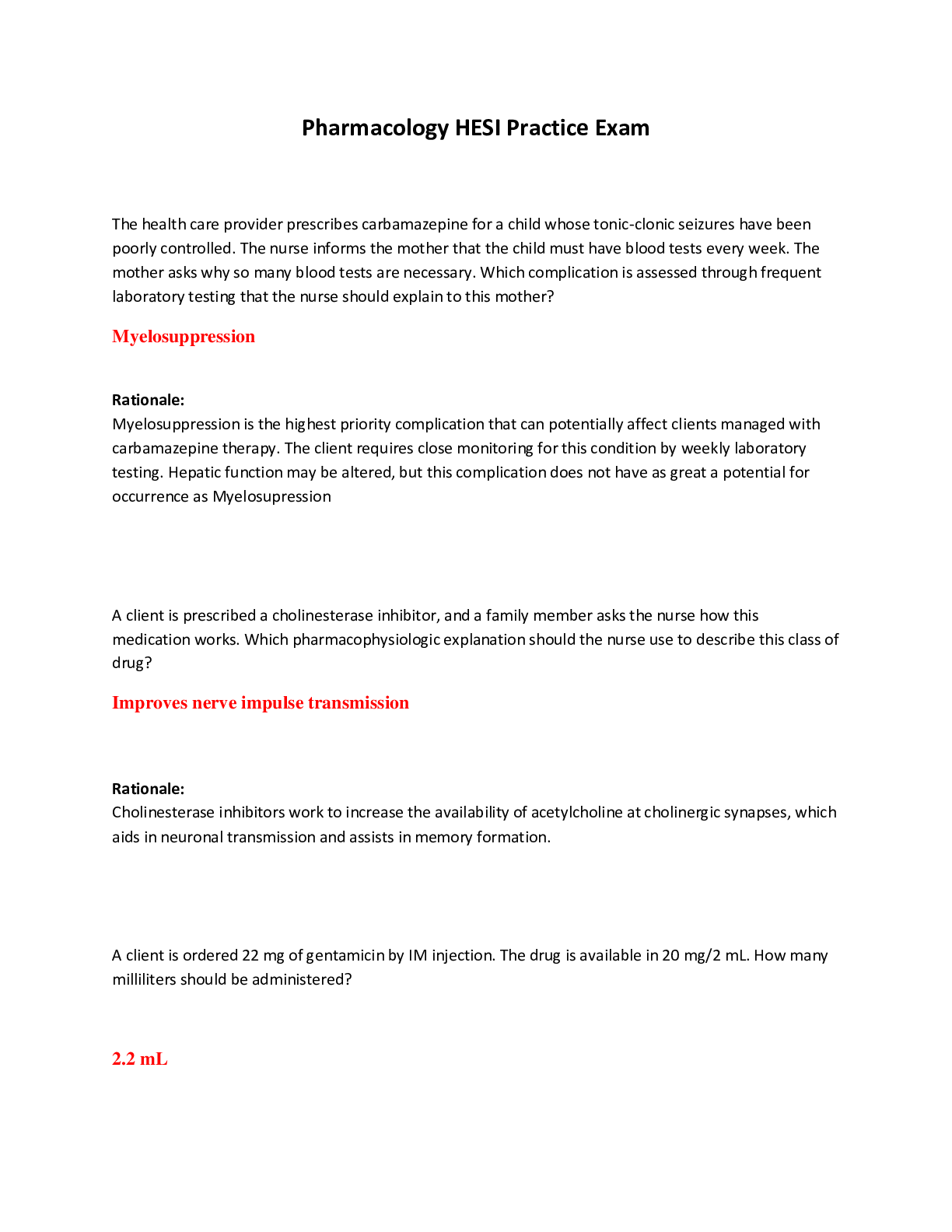
Reviews( 0 )
Document information
Connected school, study & course
About the document
Uploaded On
Apr 11, 2021
Number of pages
41
Written in
Additional information
This document has been written for:
Uploaded
Apr 11, 2021
Downloads
0
Views
51

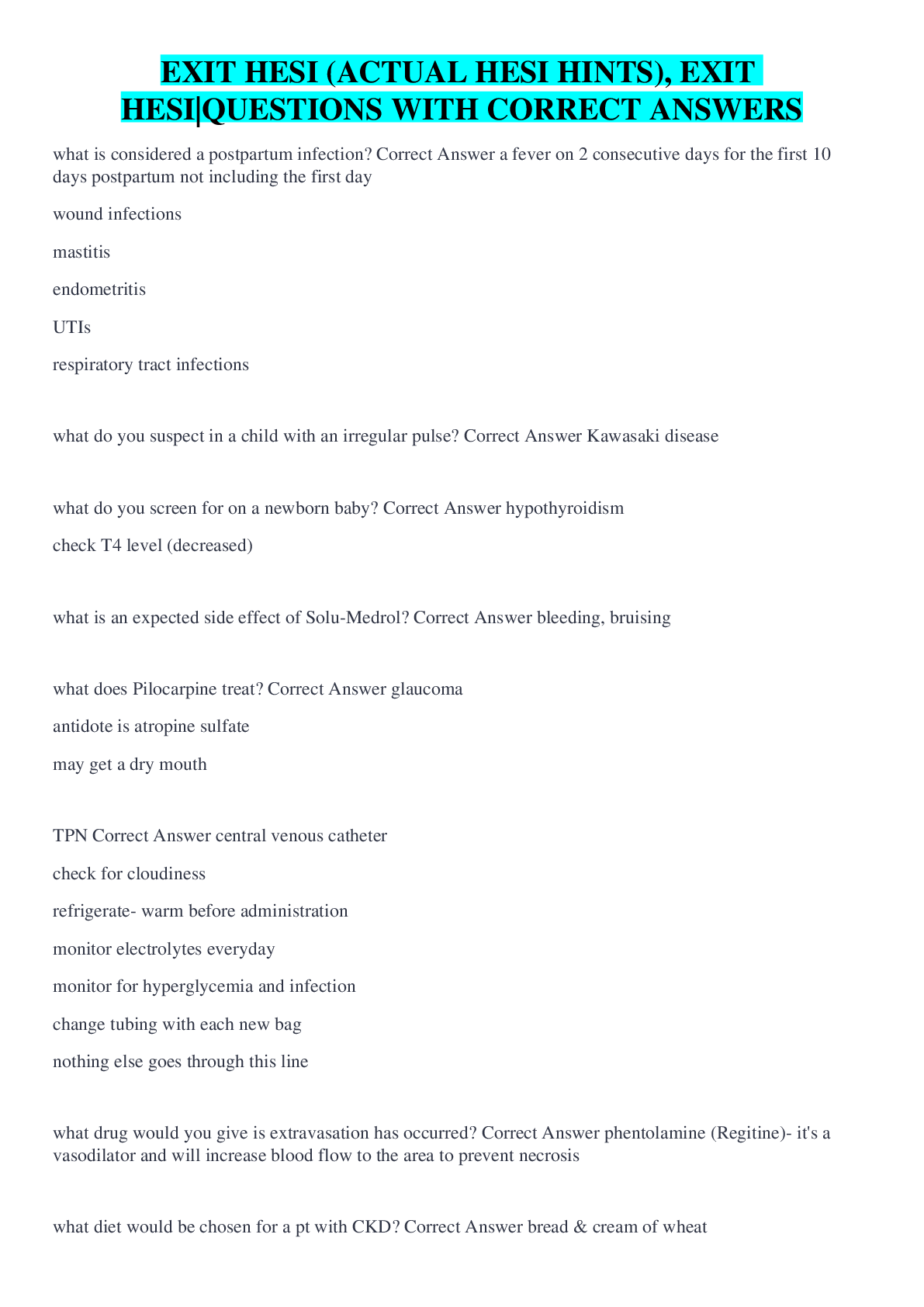
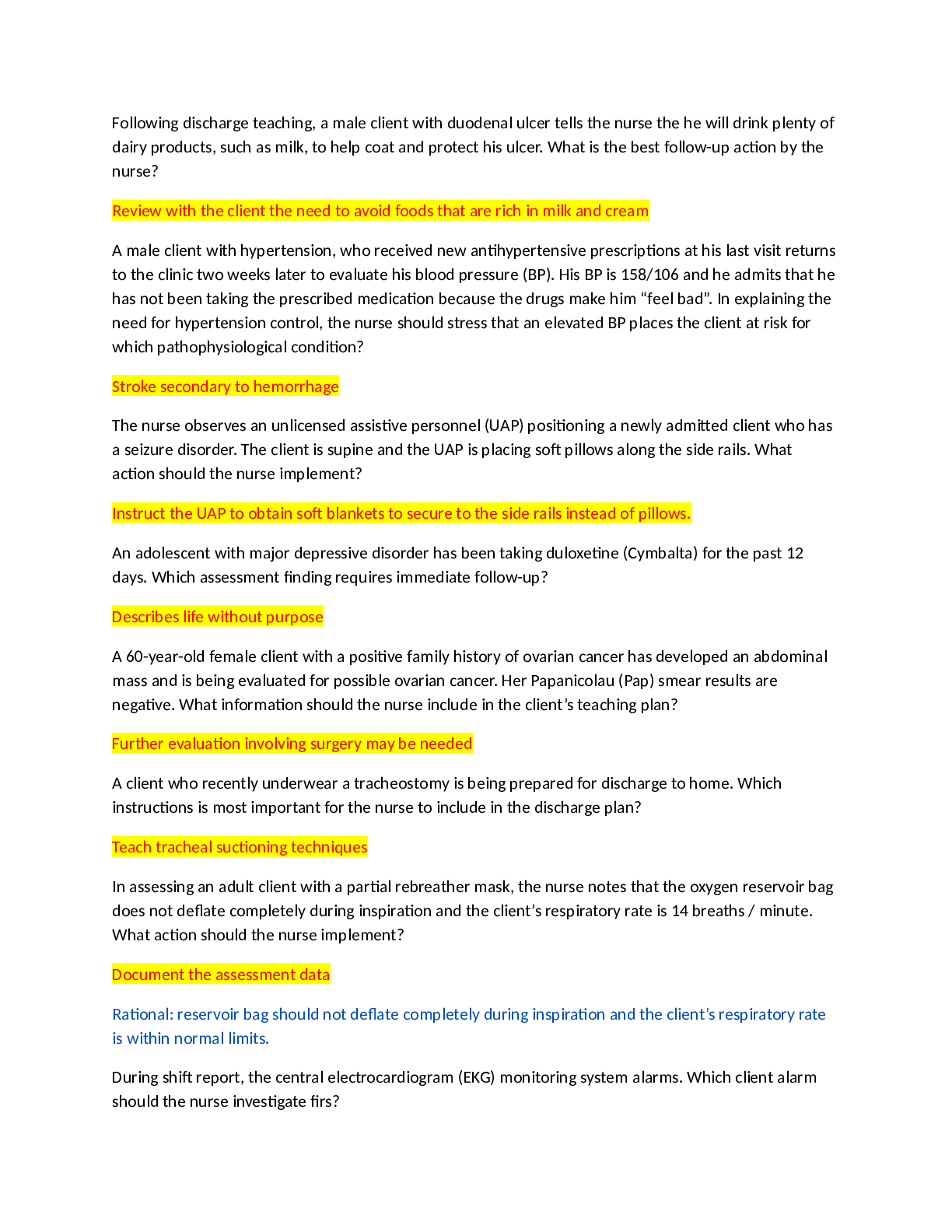
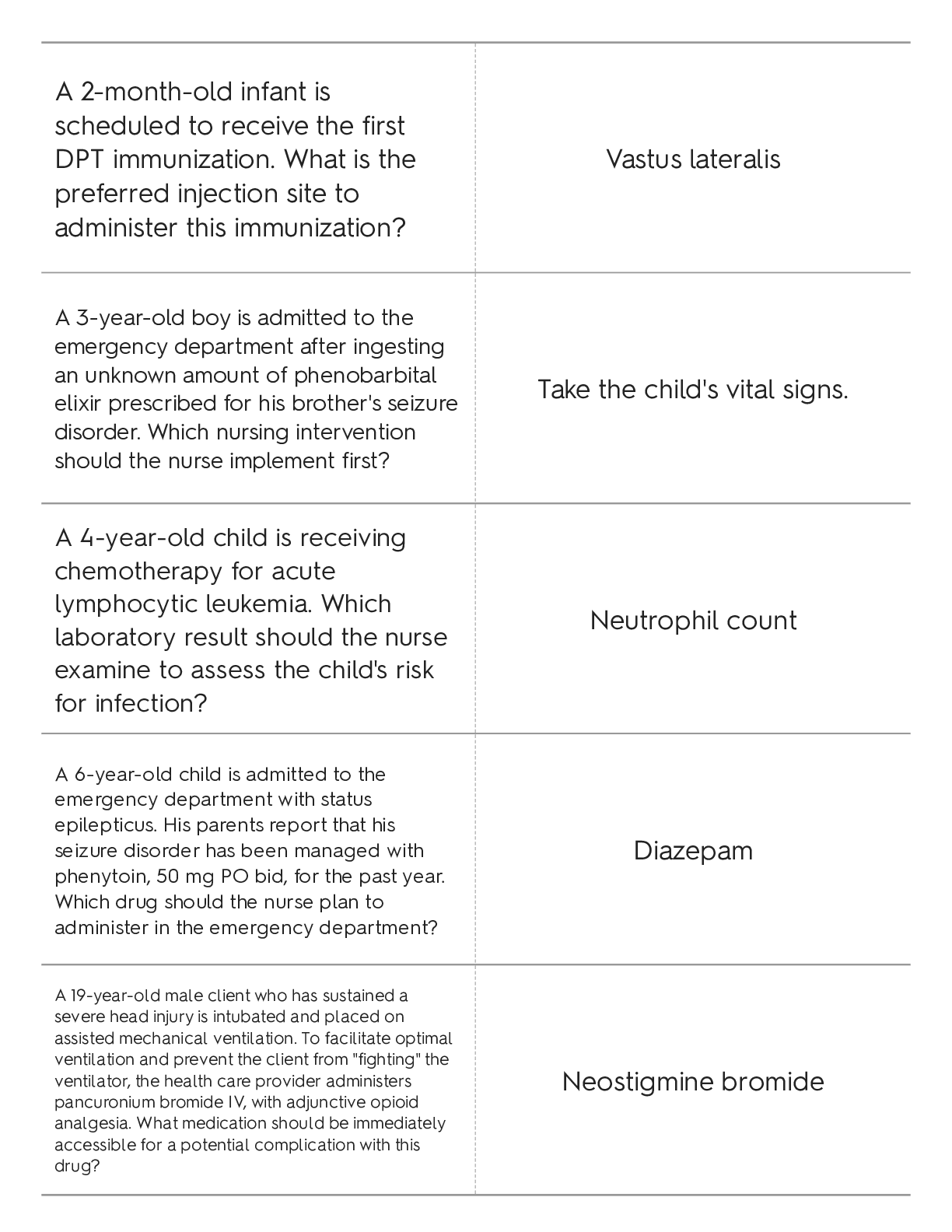
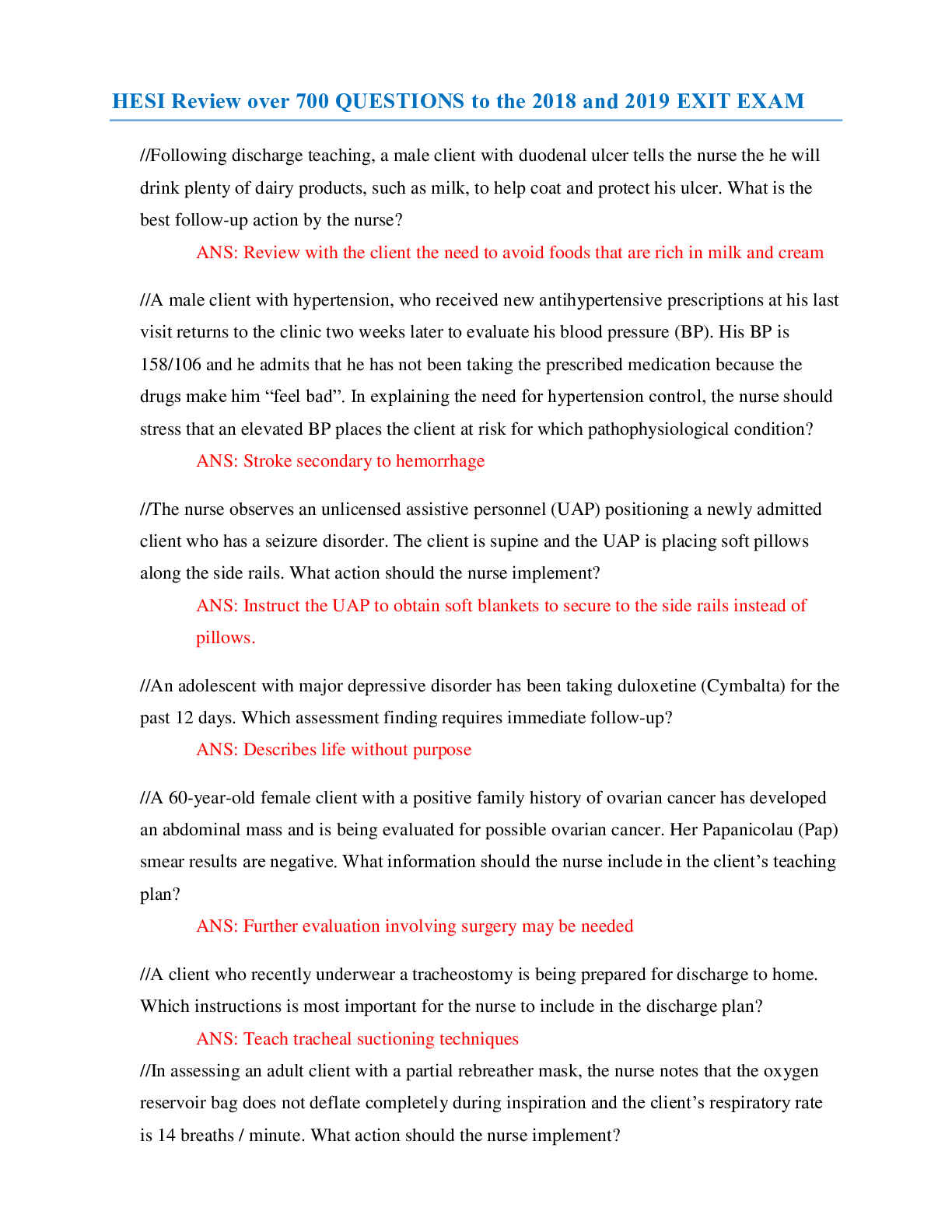
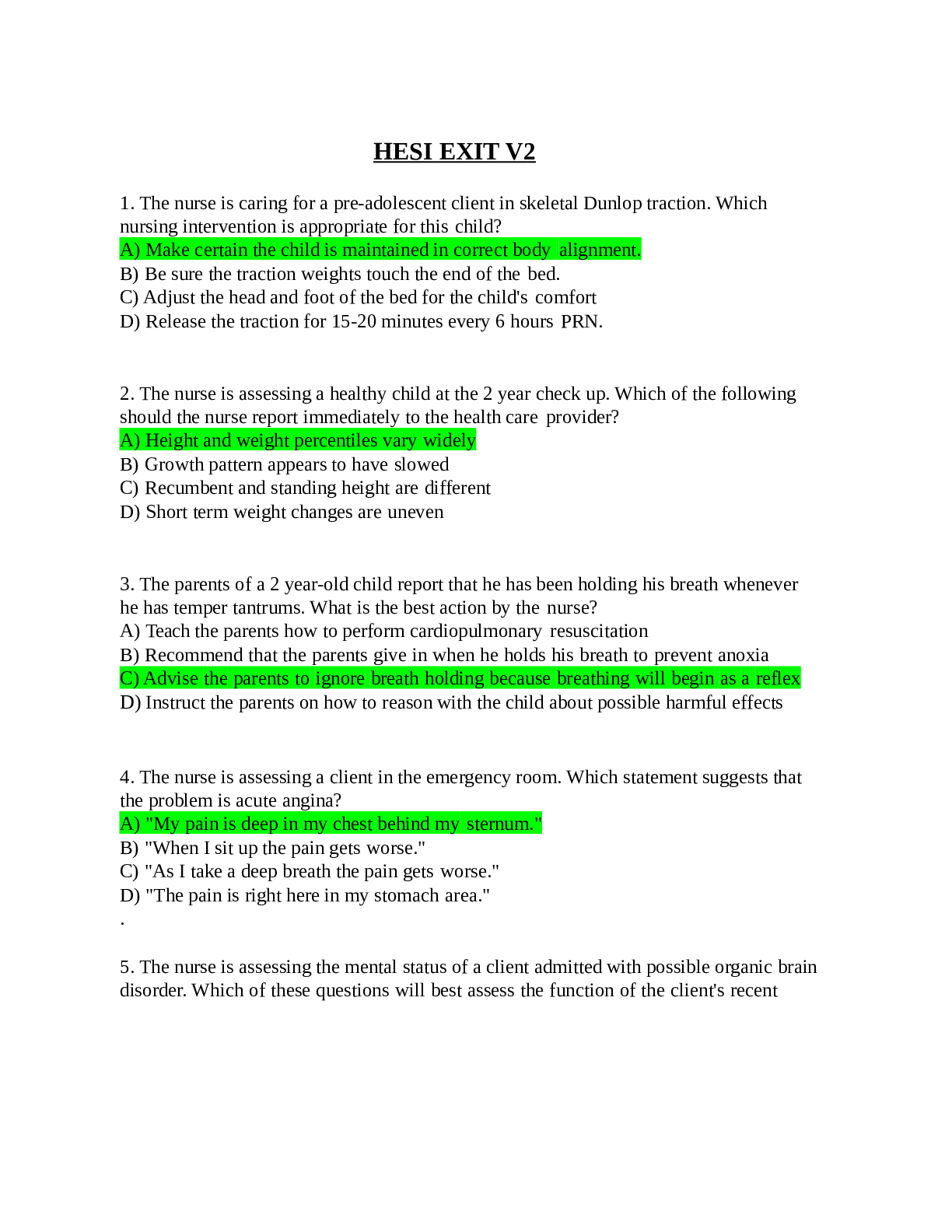
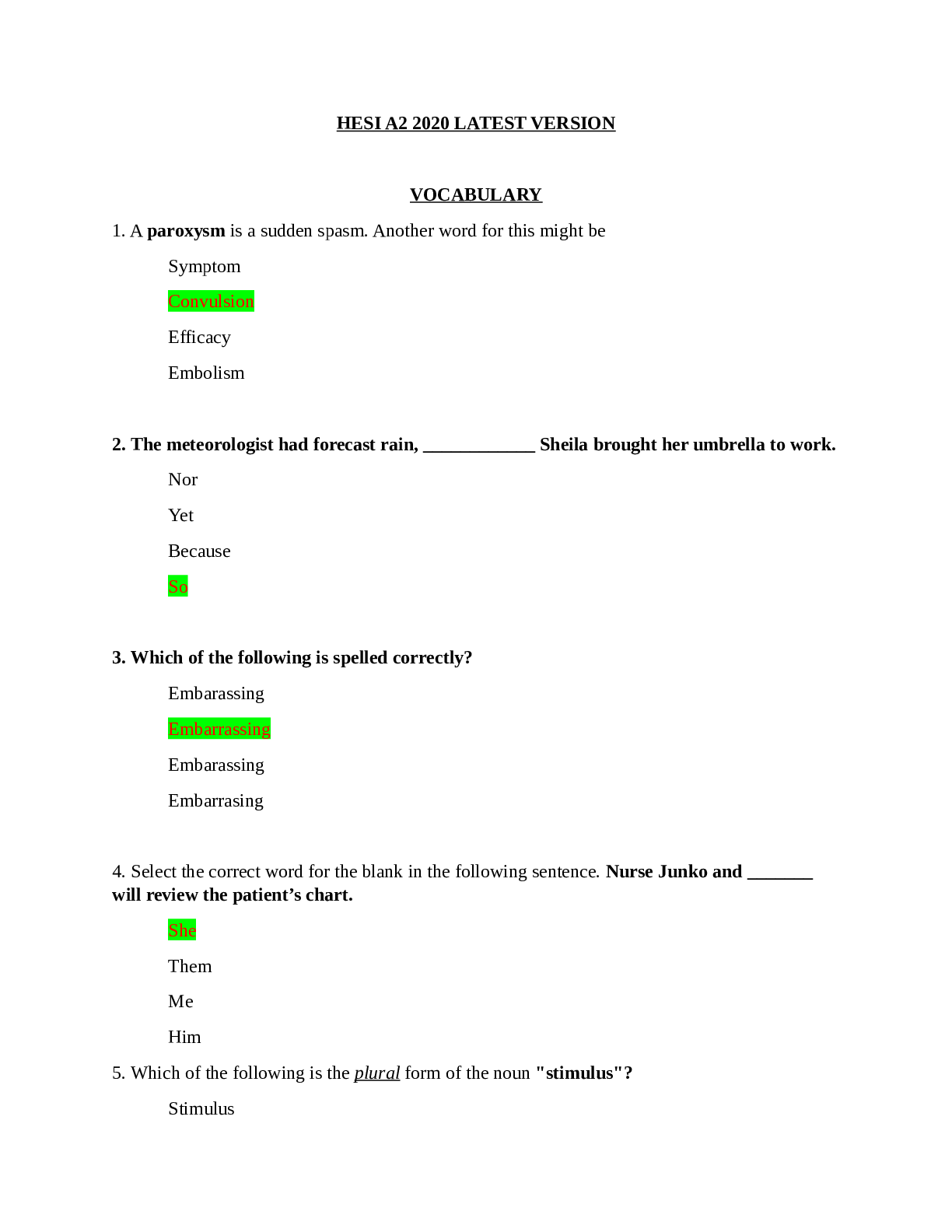
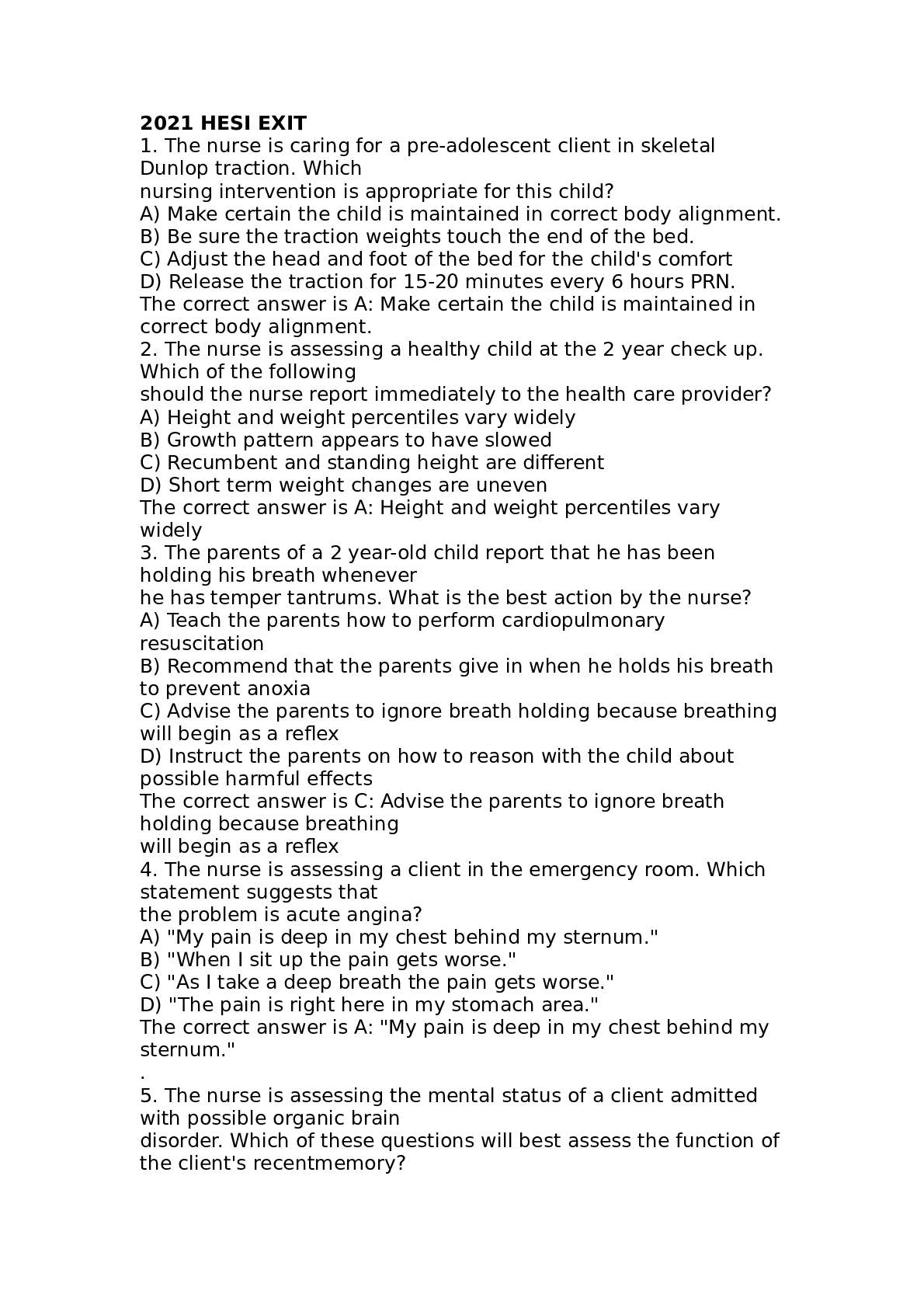
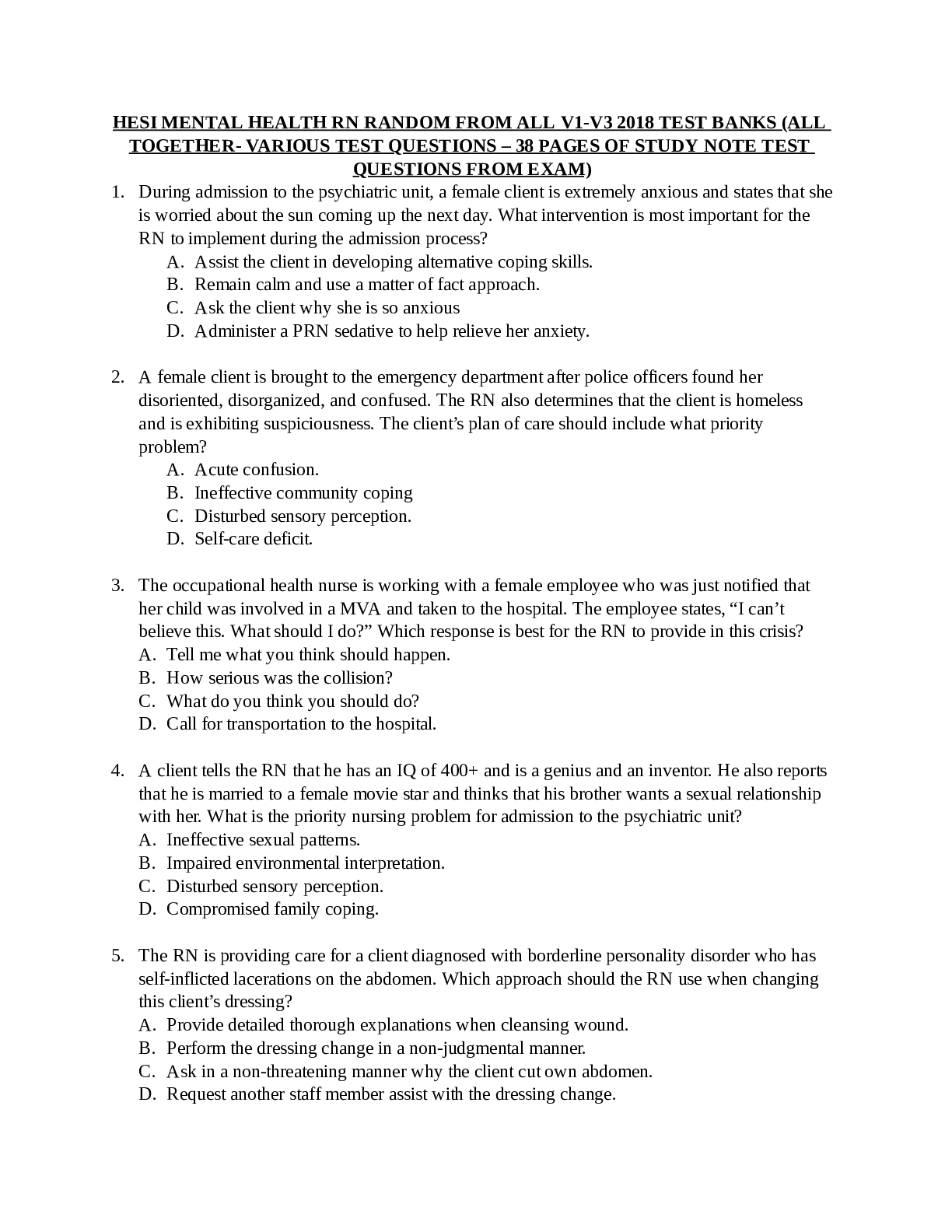
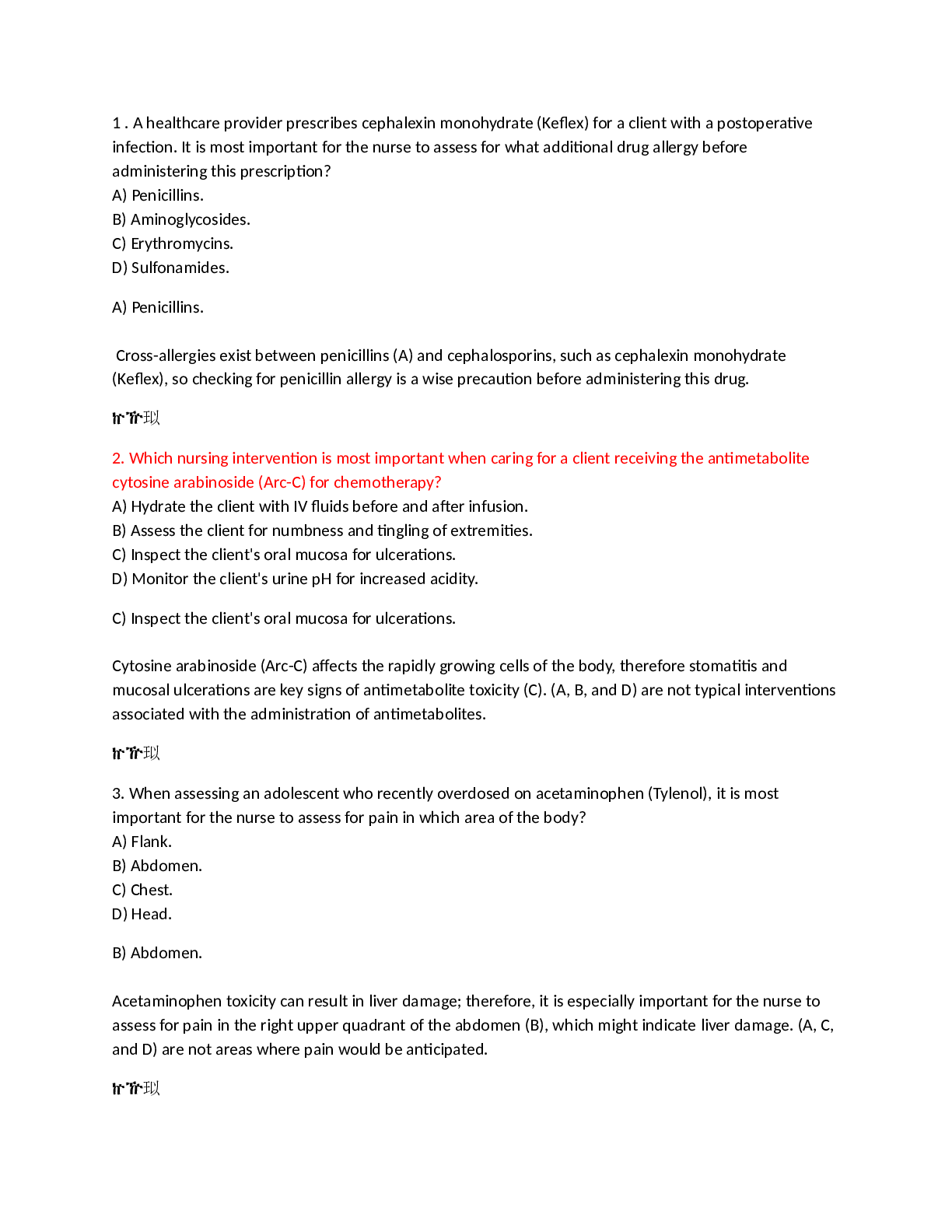
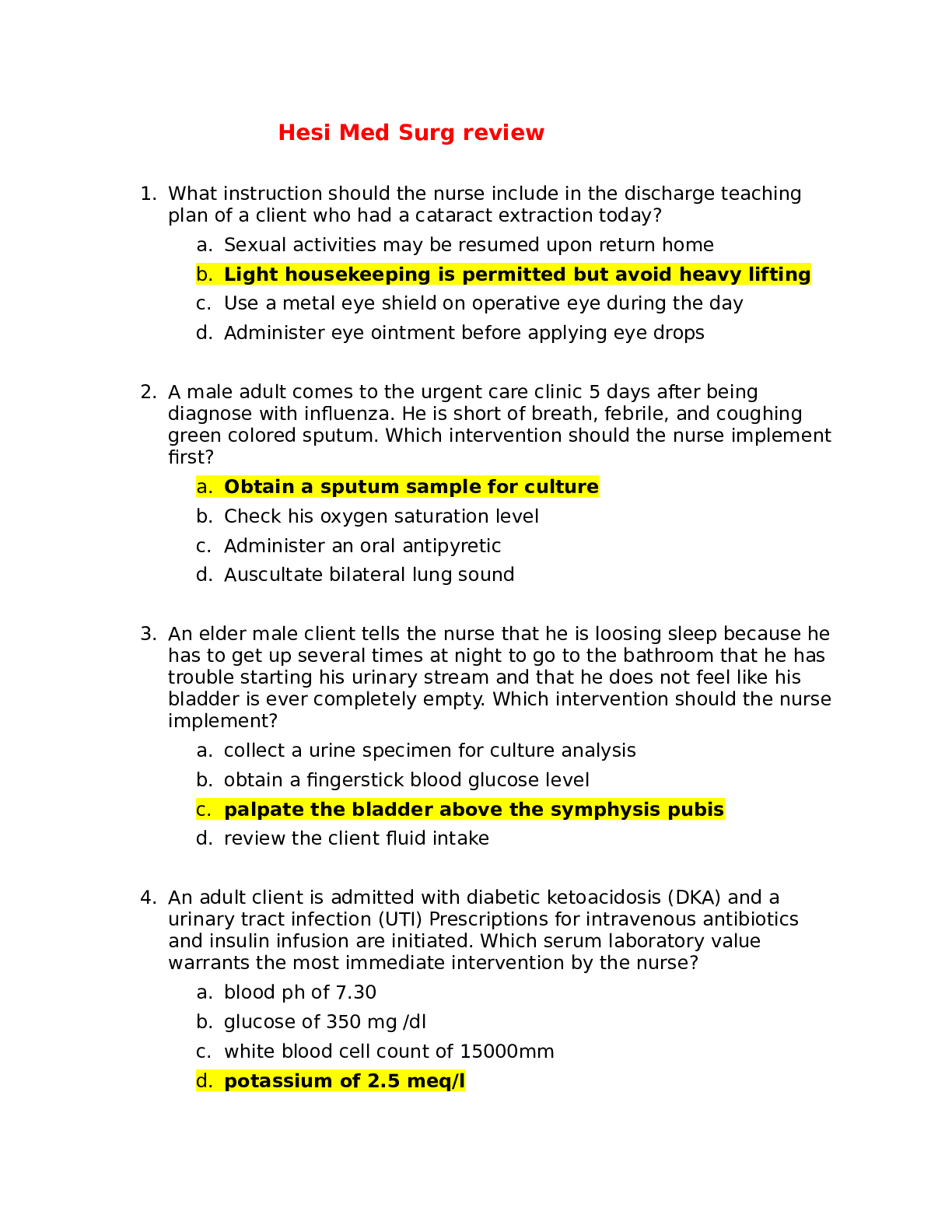

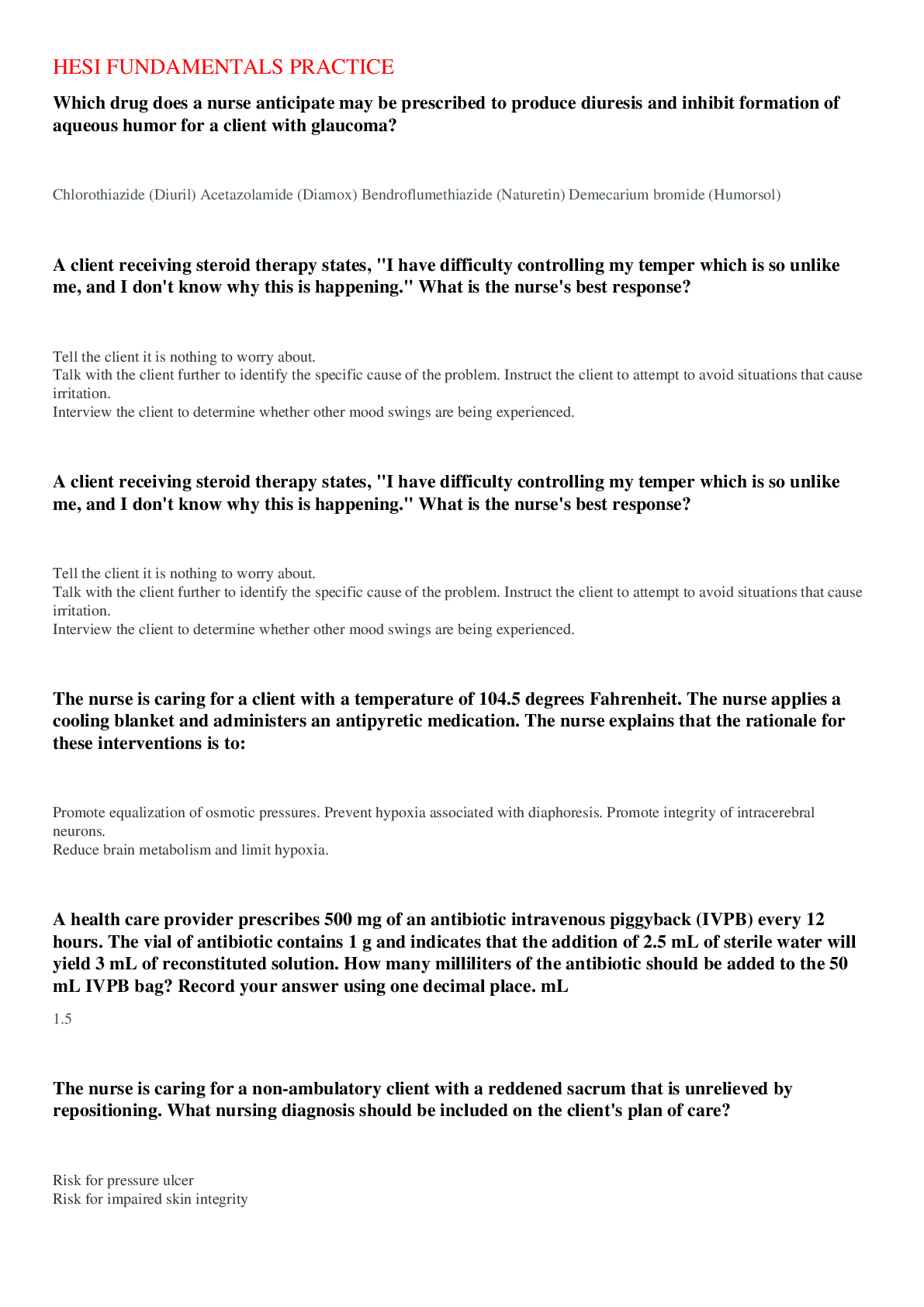
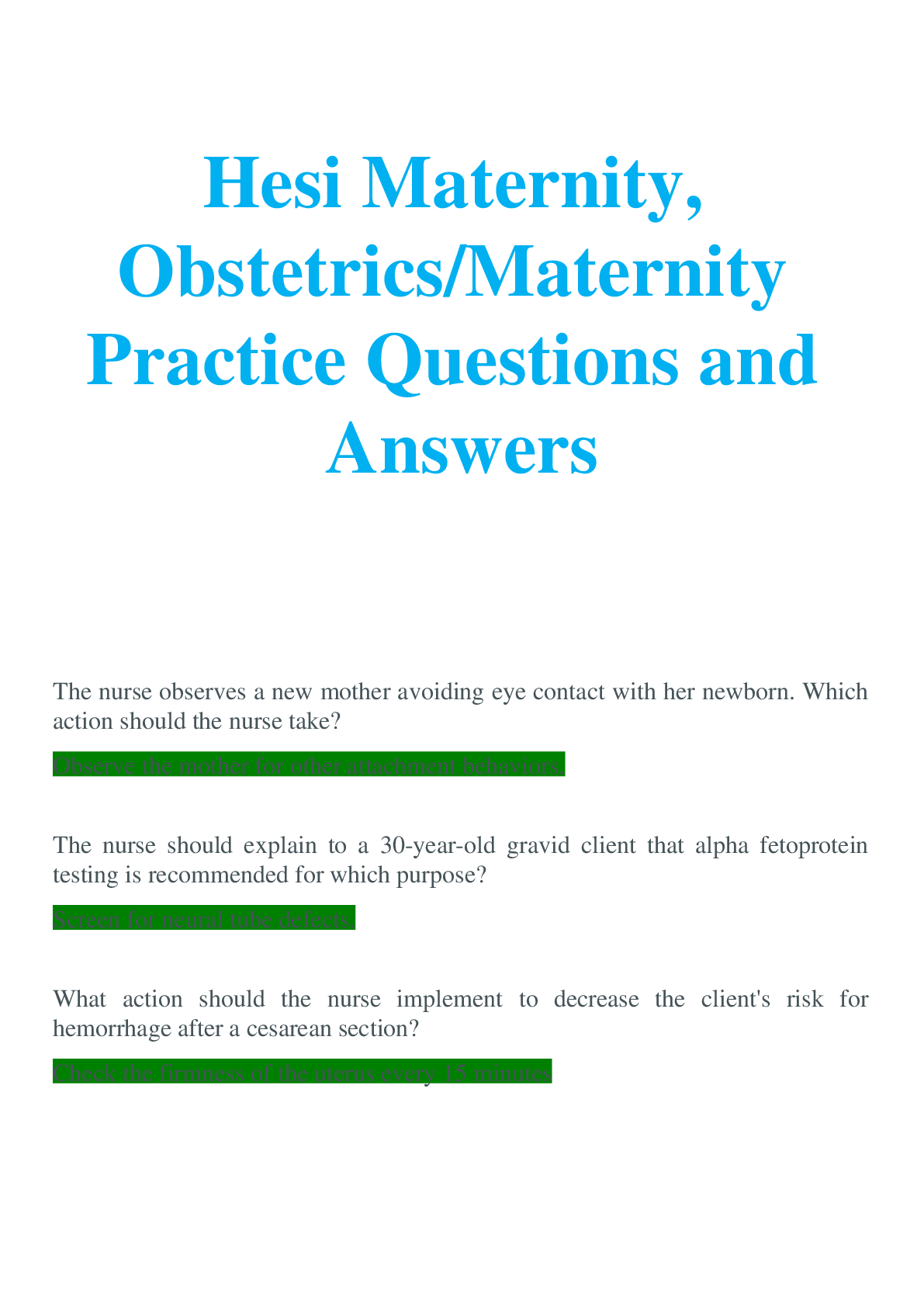
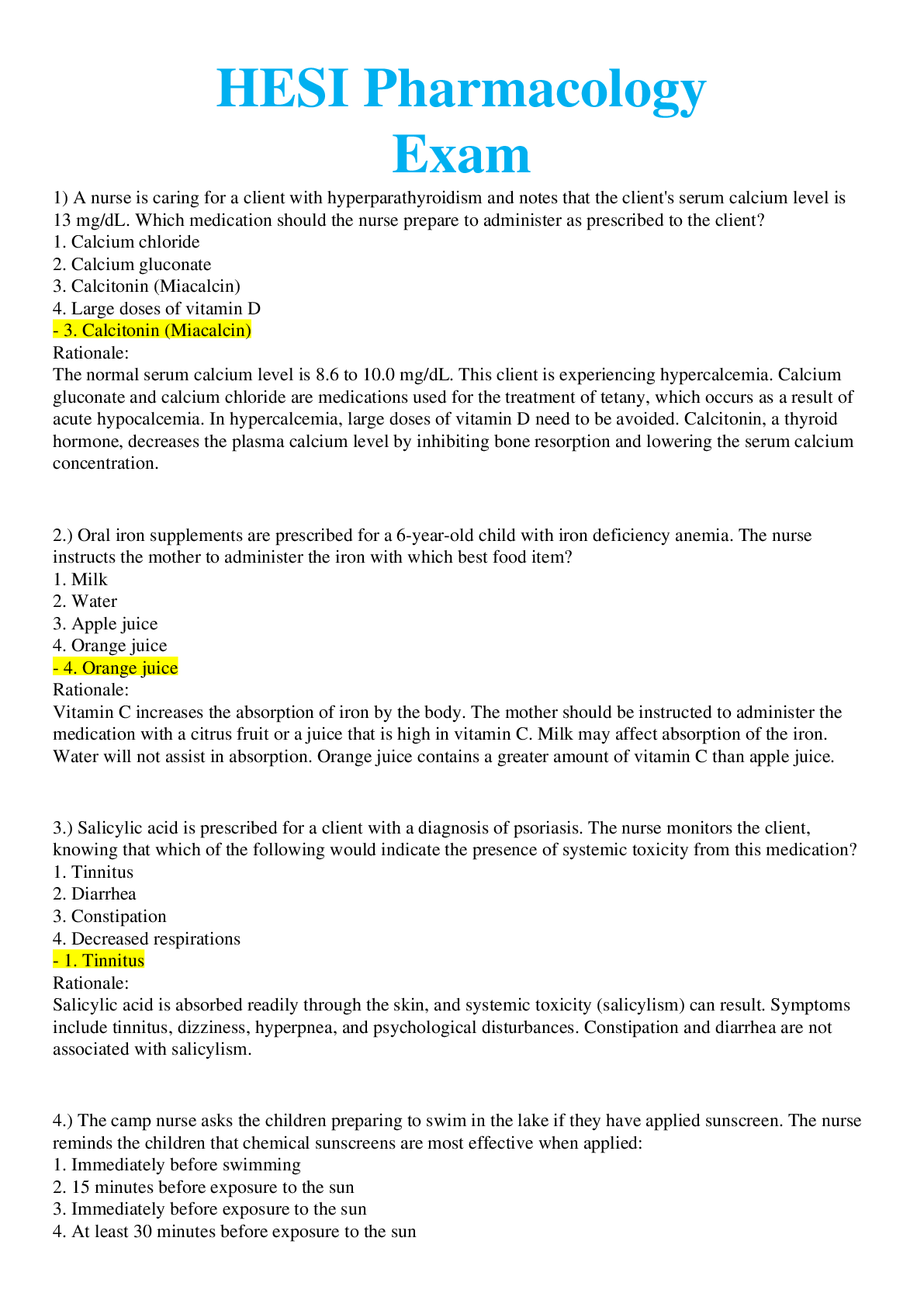
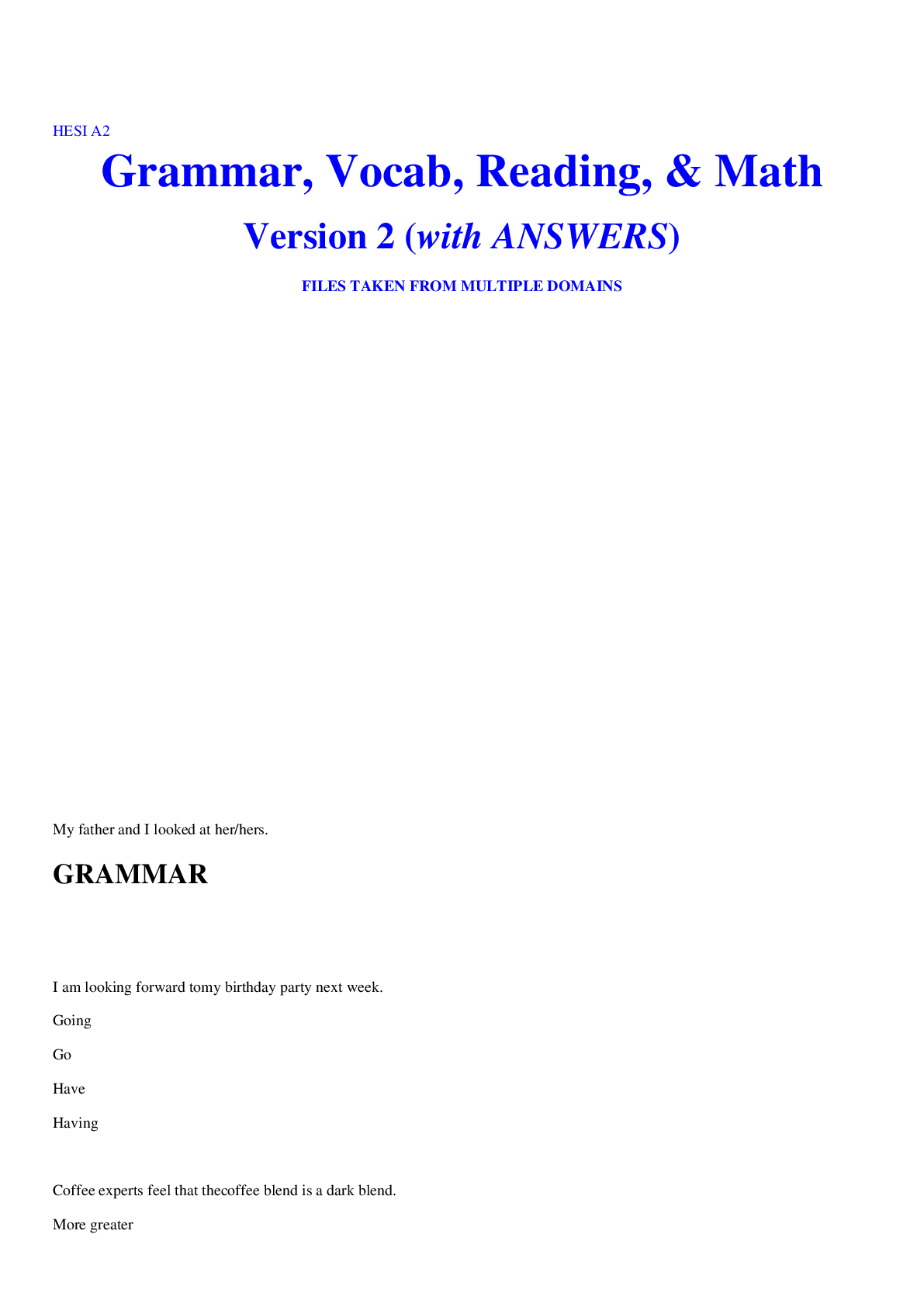
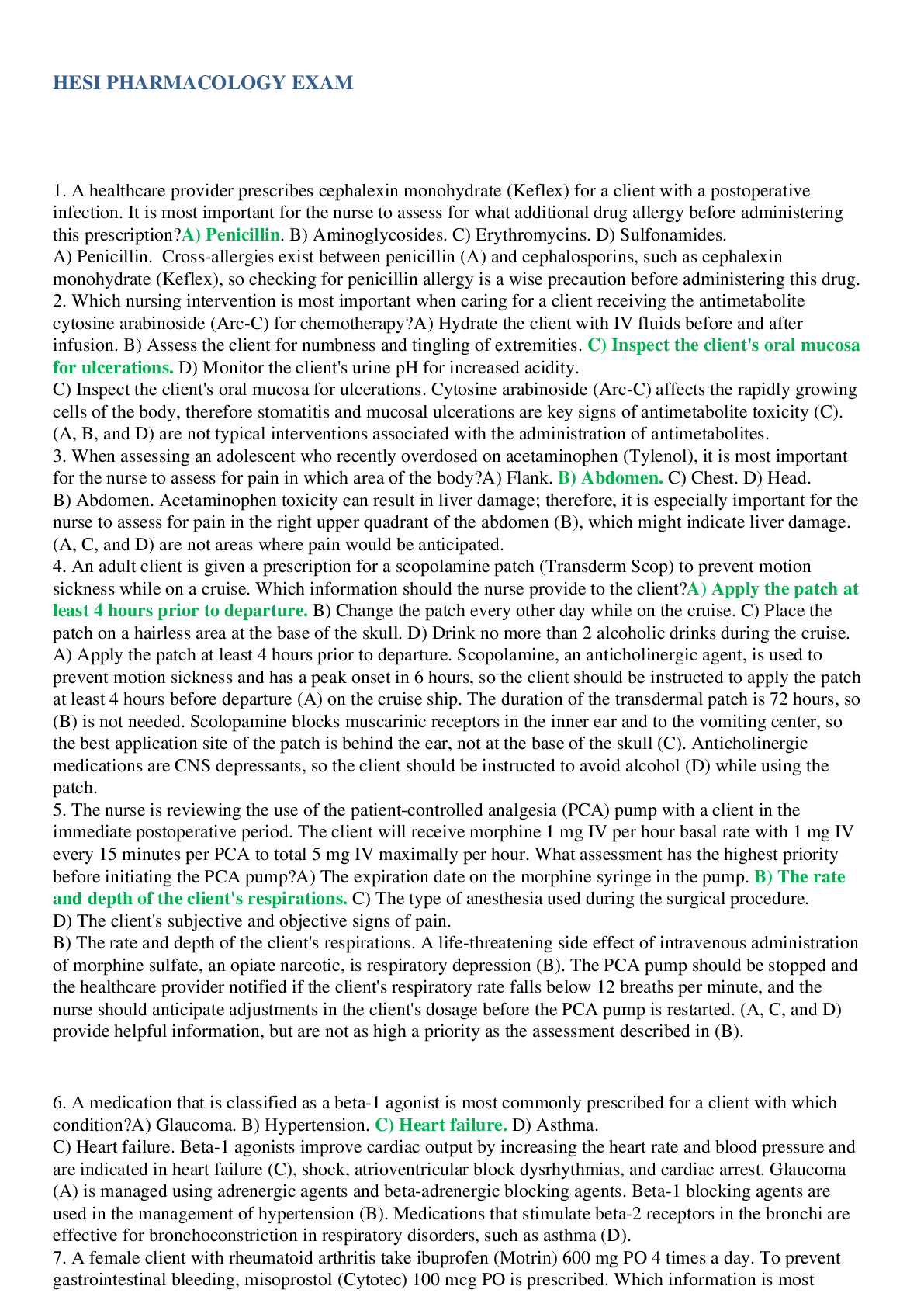
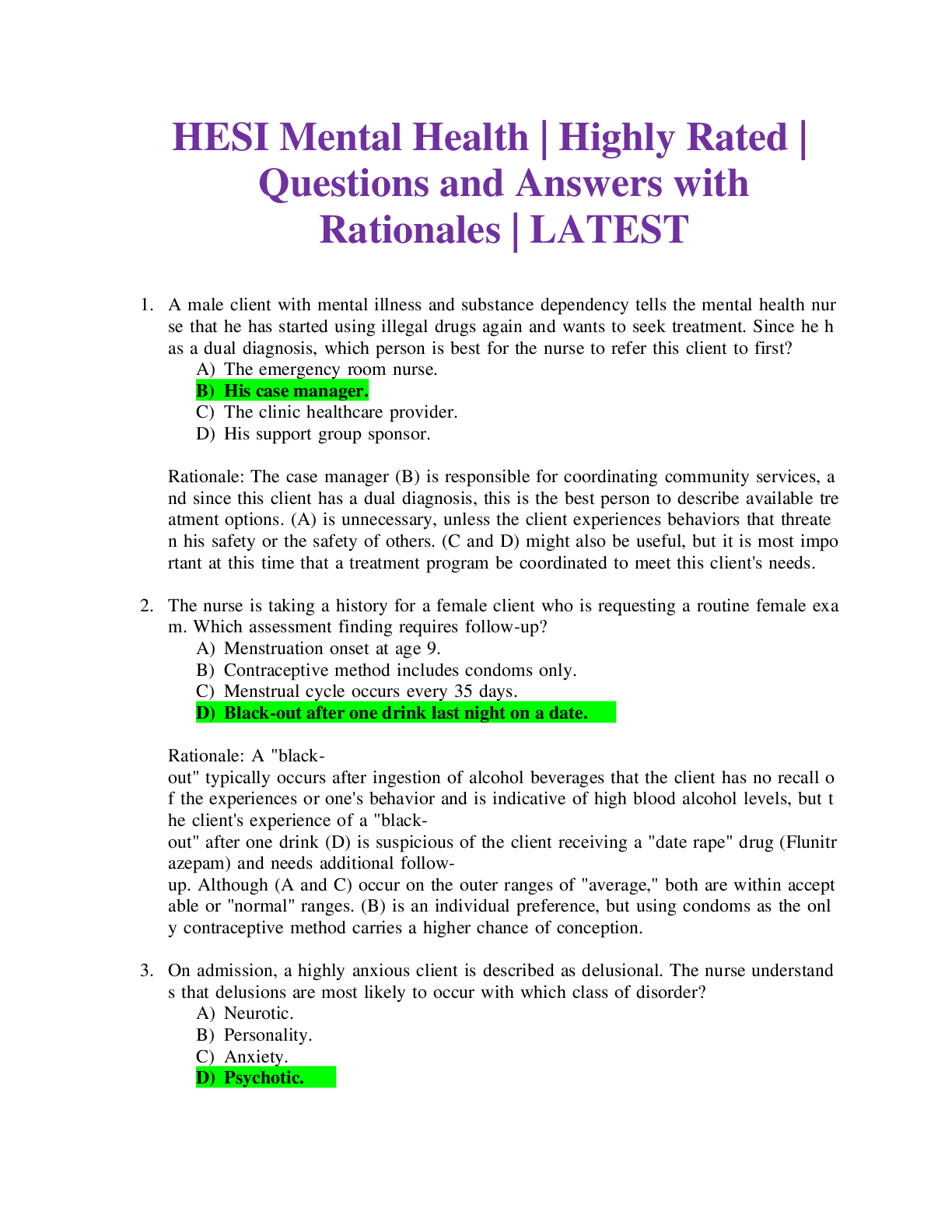
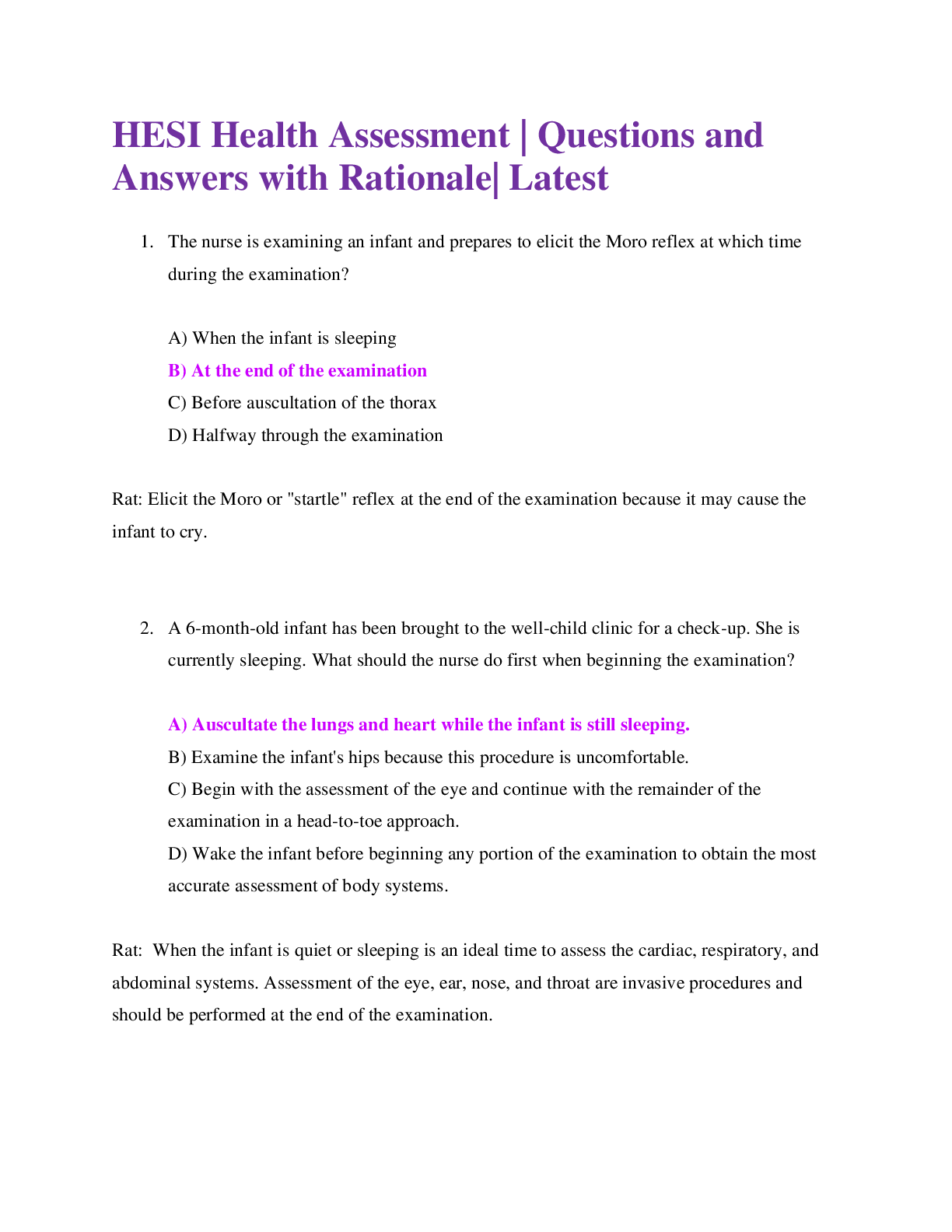
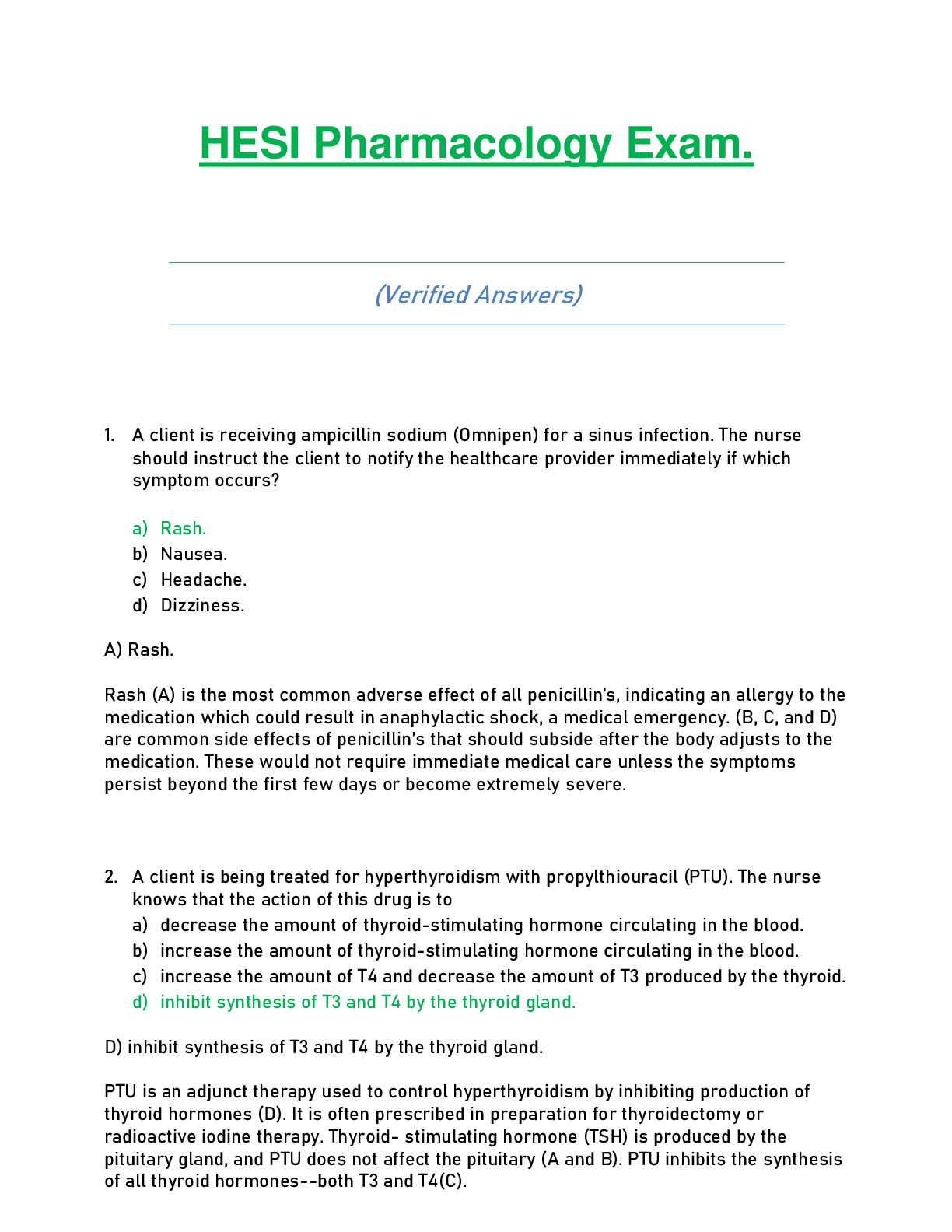
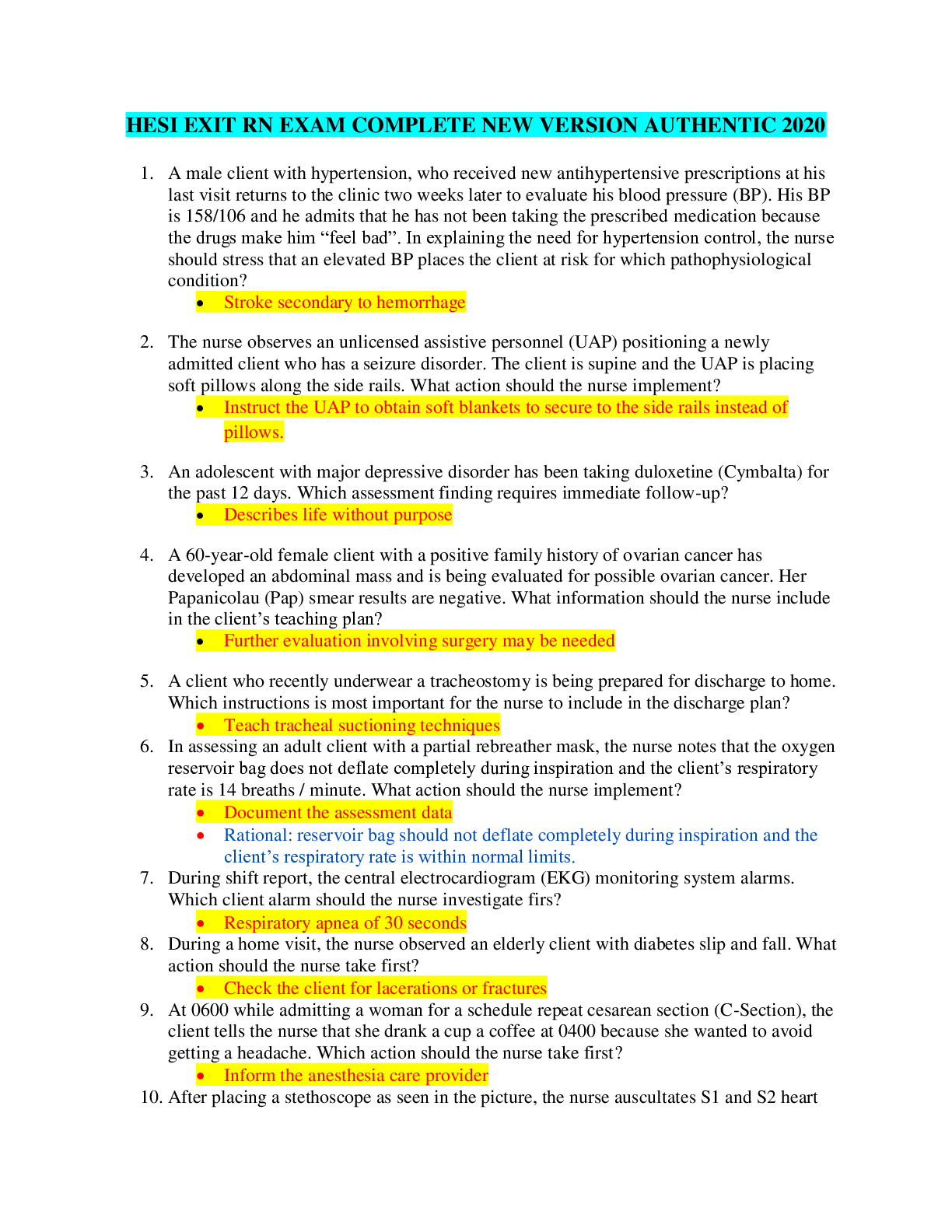
ESI PHARMACOLOGY EXAM (72 Q & A)(Latest, 2021-2022)(VERIFIED ALL CORRECT).png)
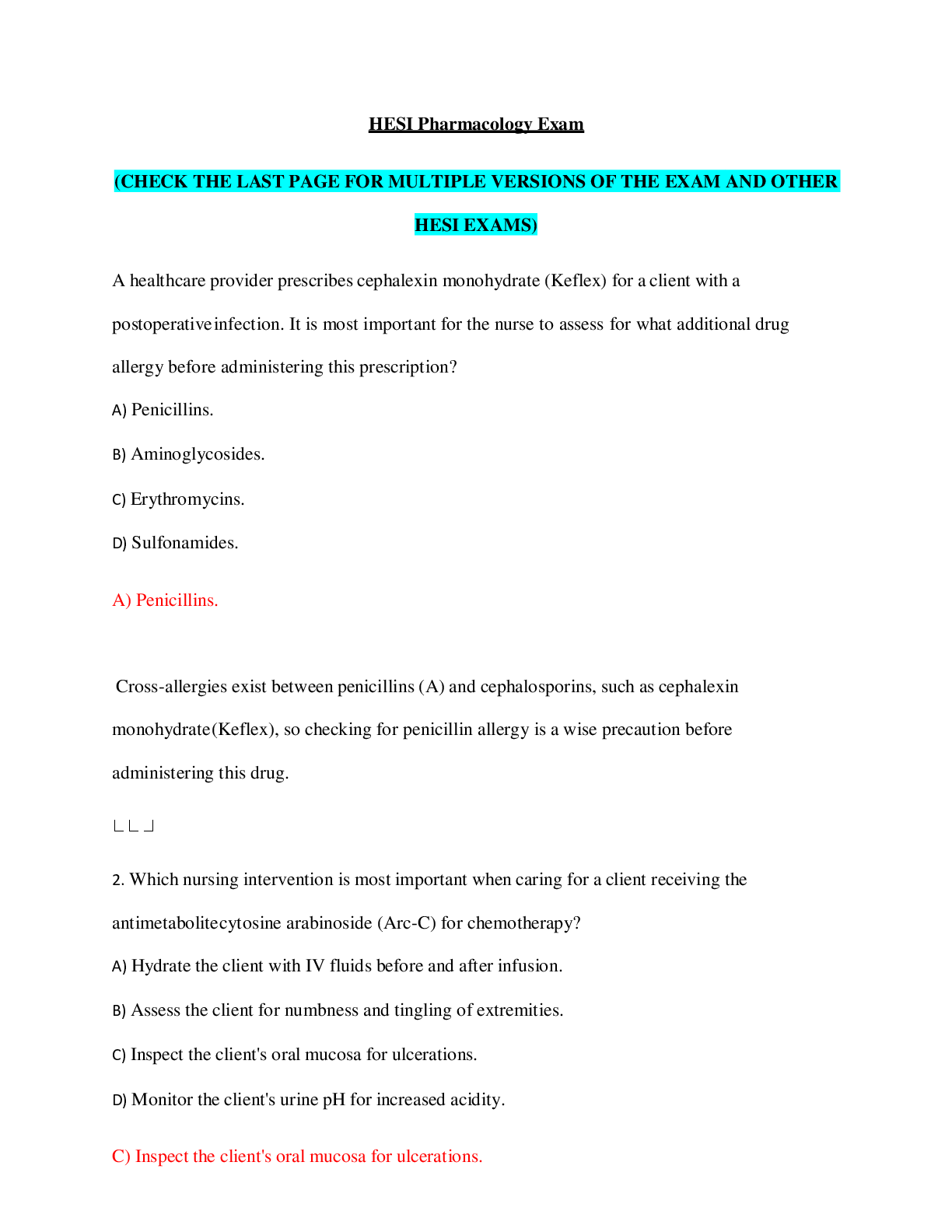
.png)
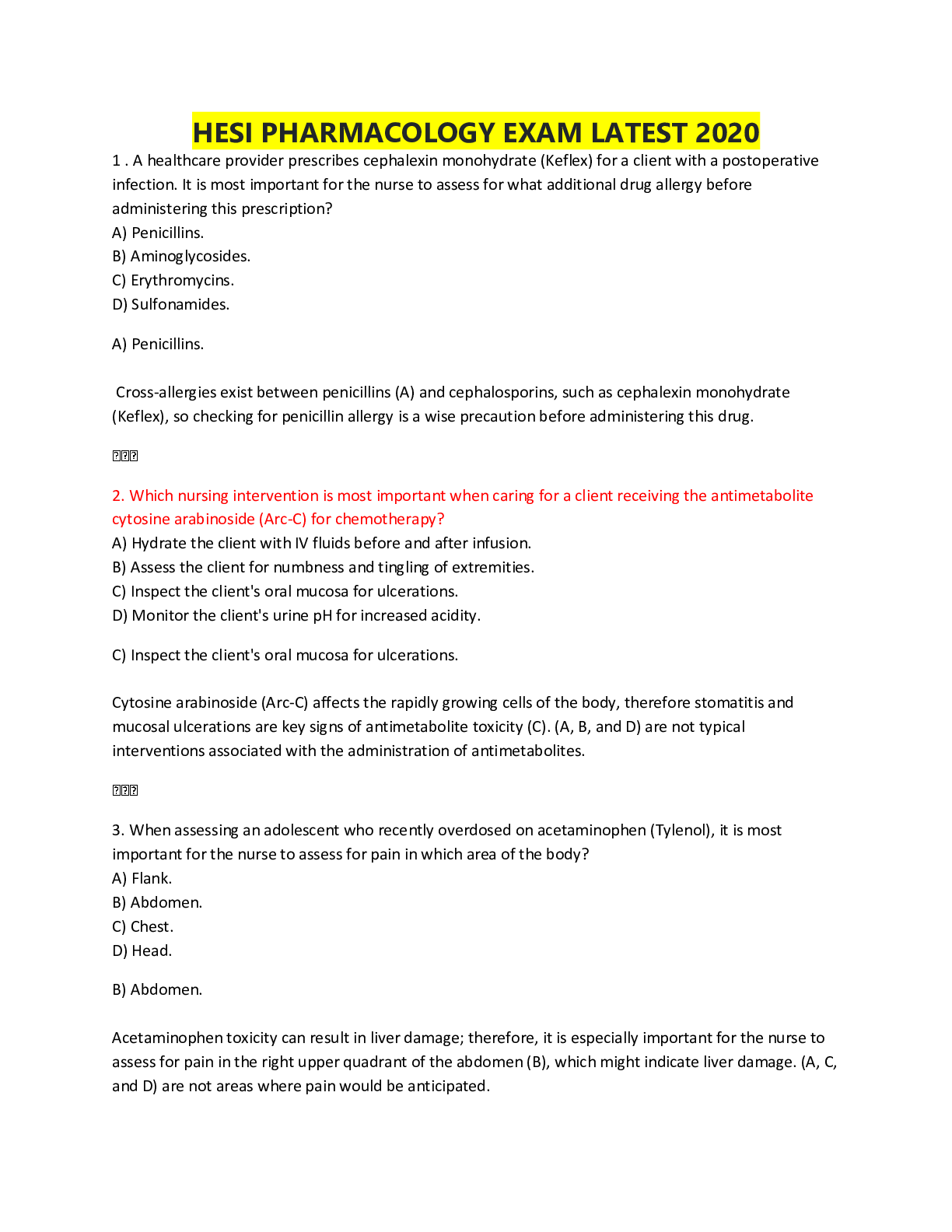
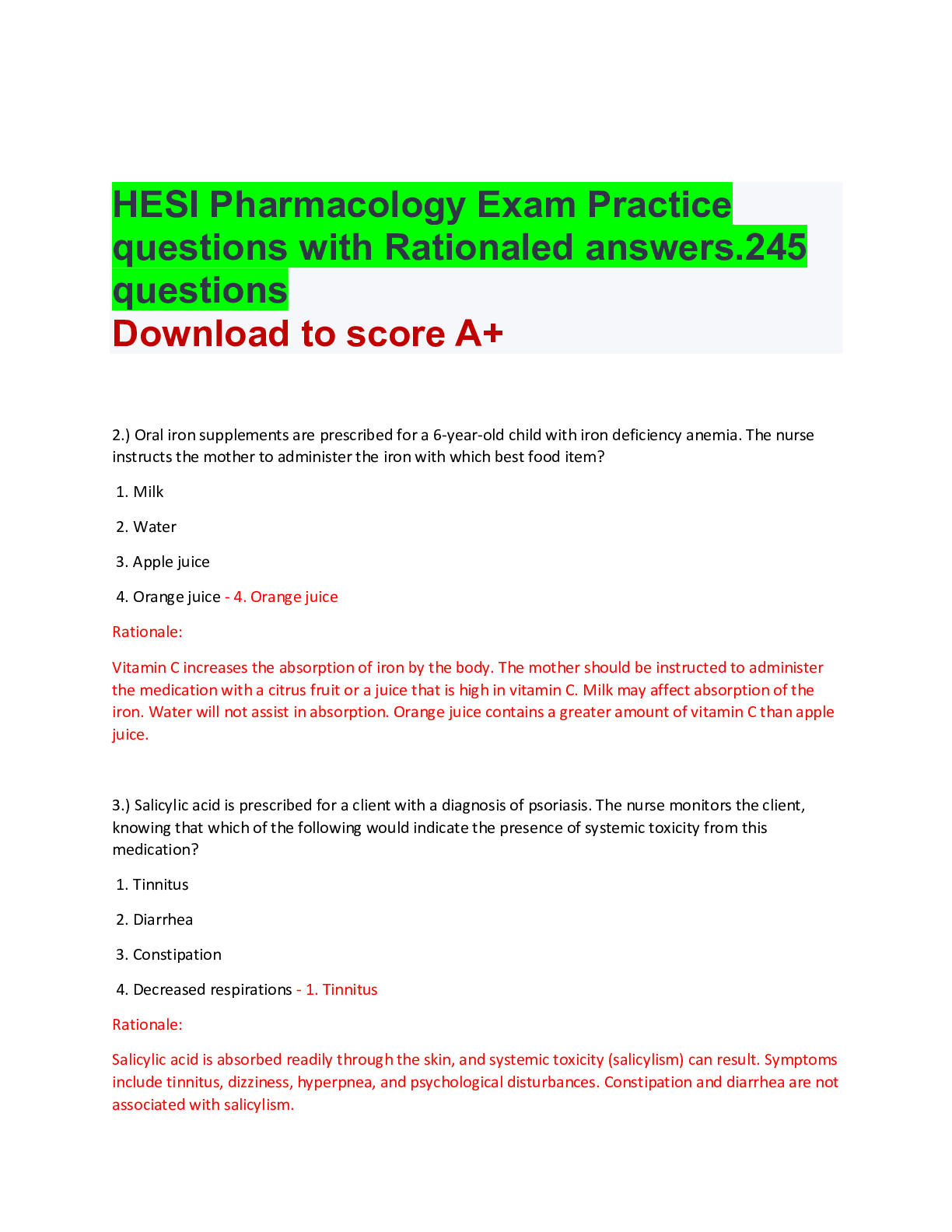
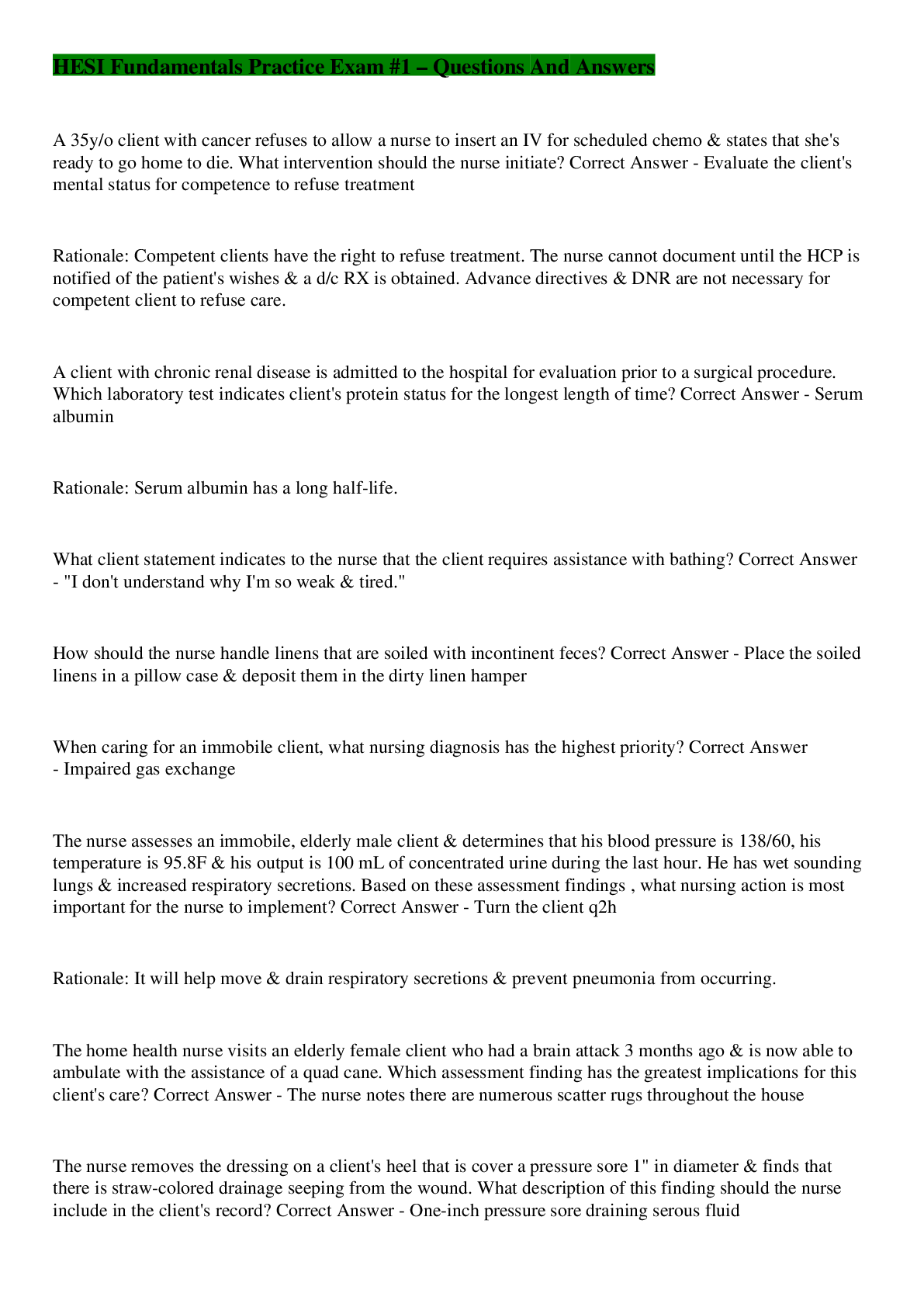
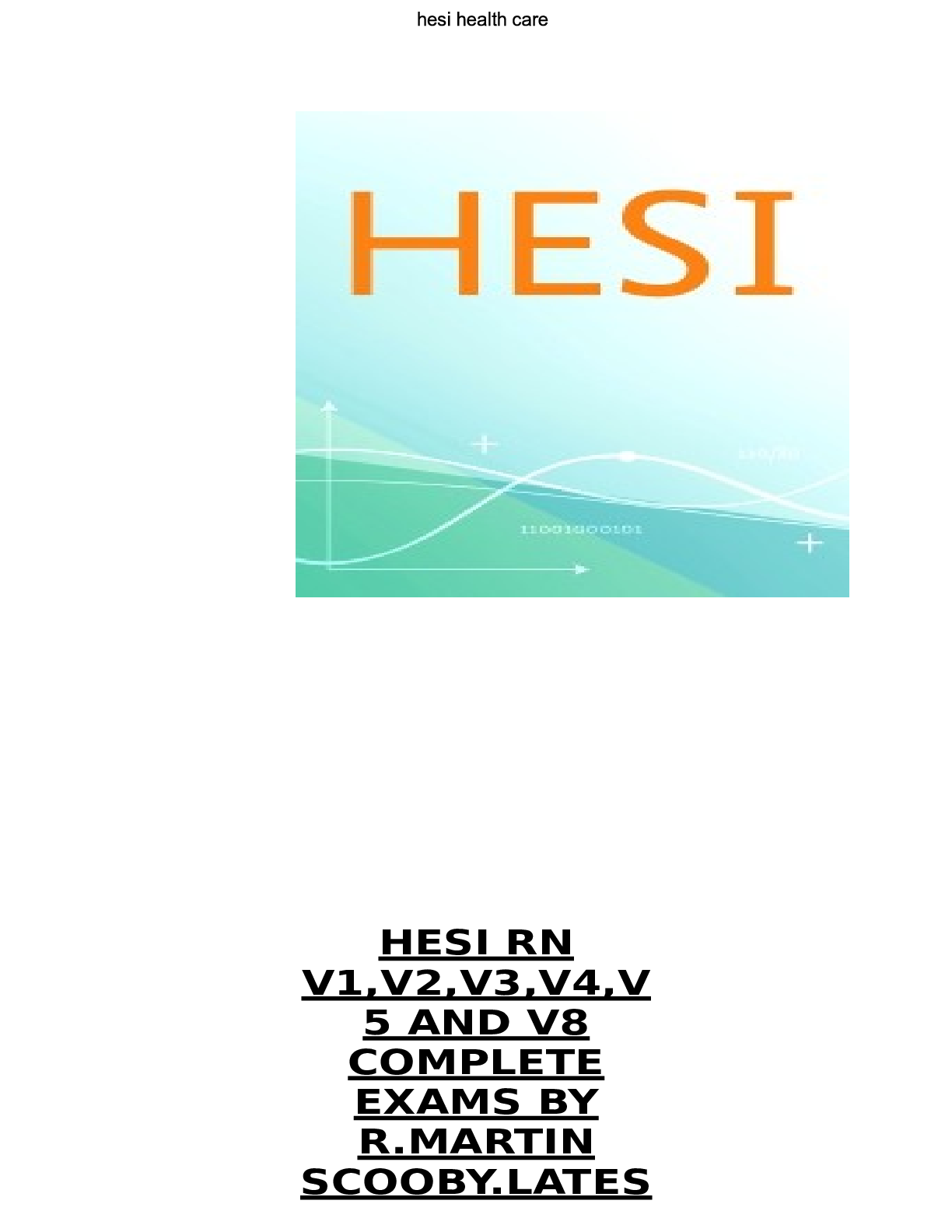
.png)
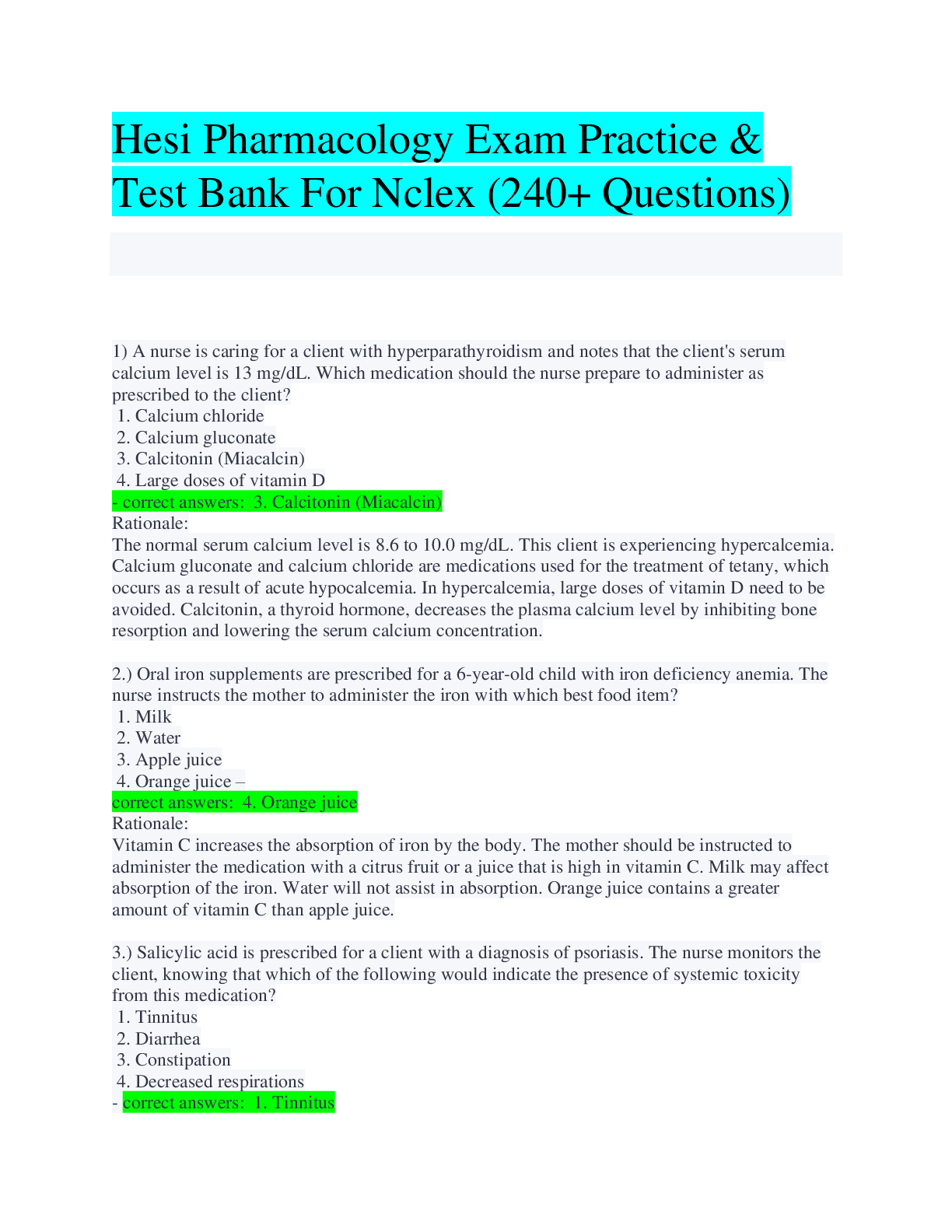
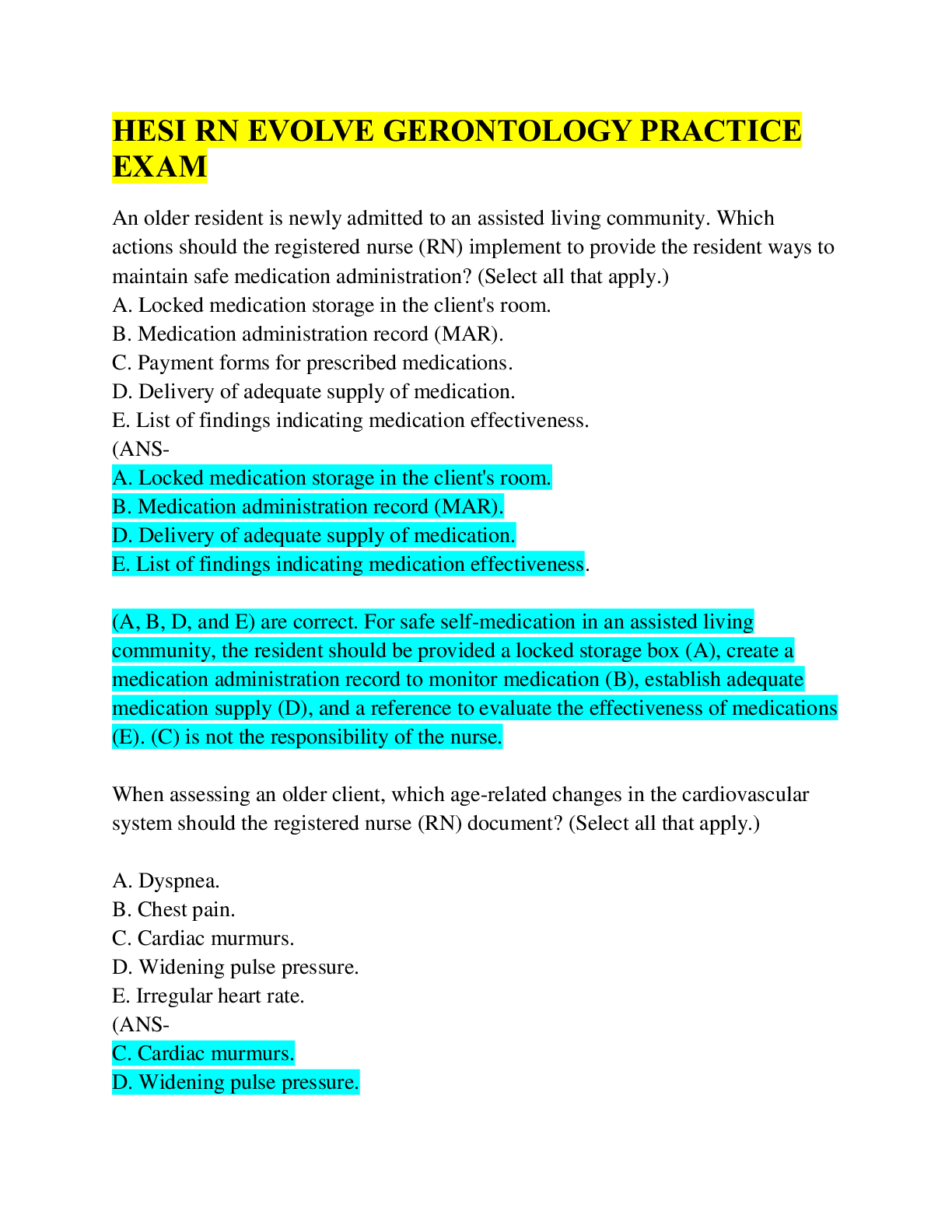
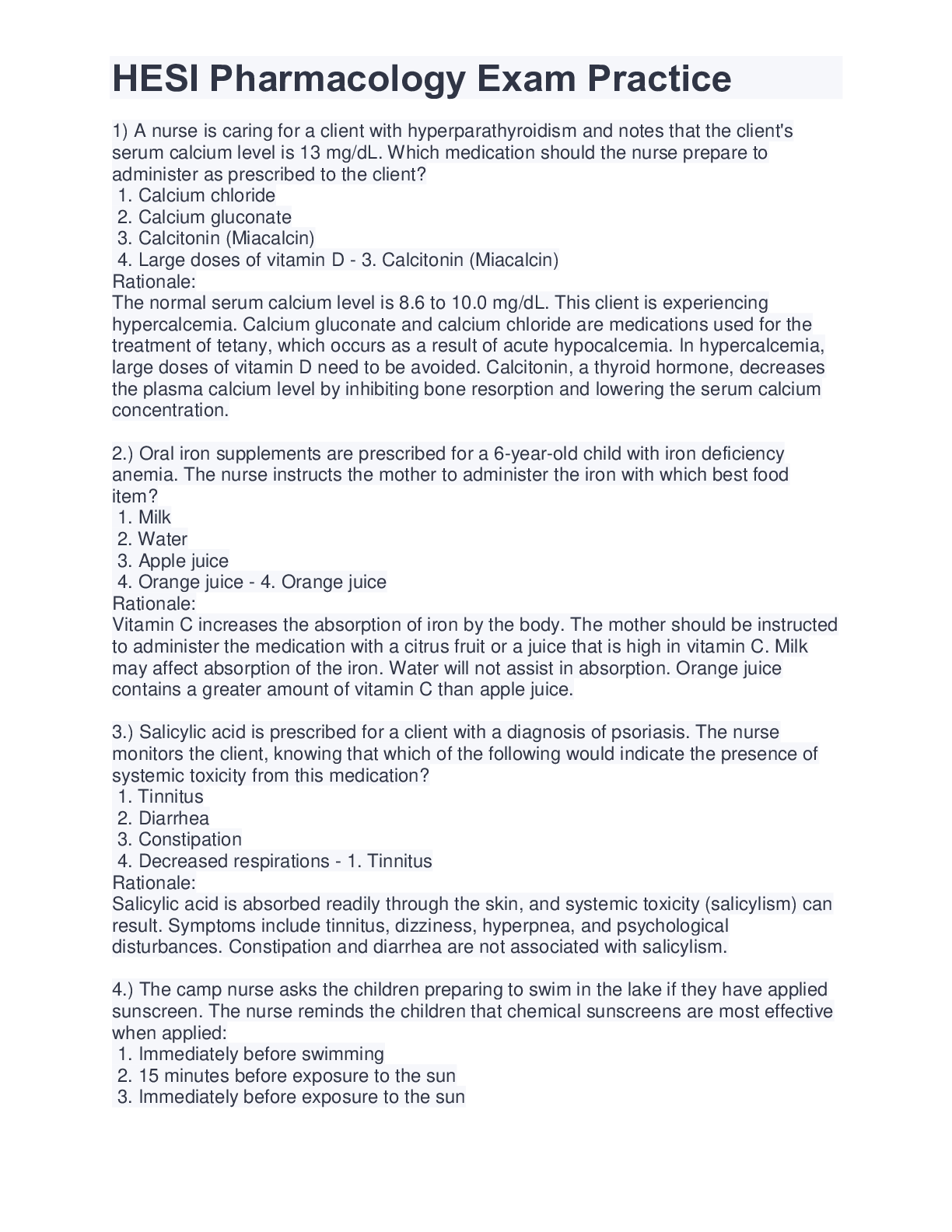
.png)
